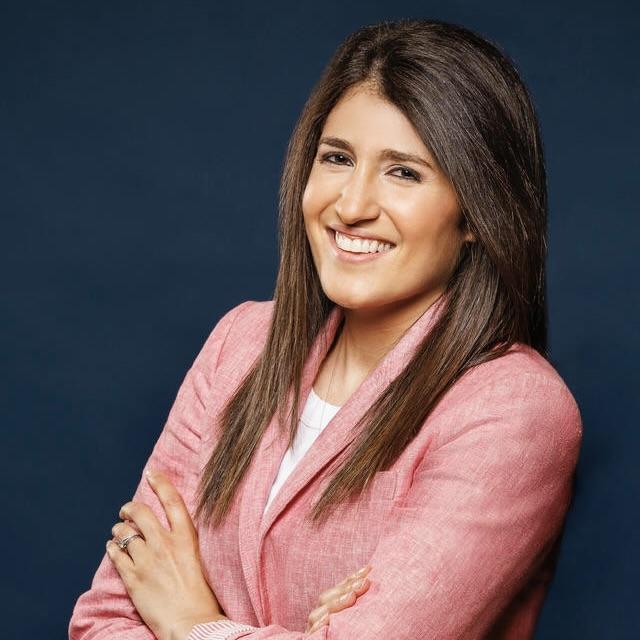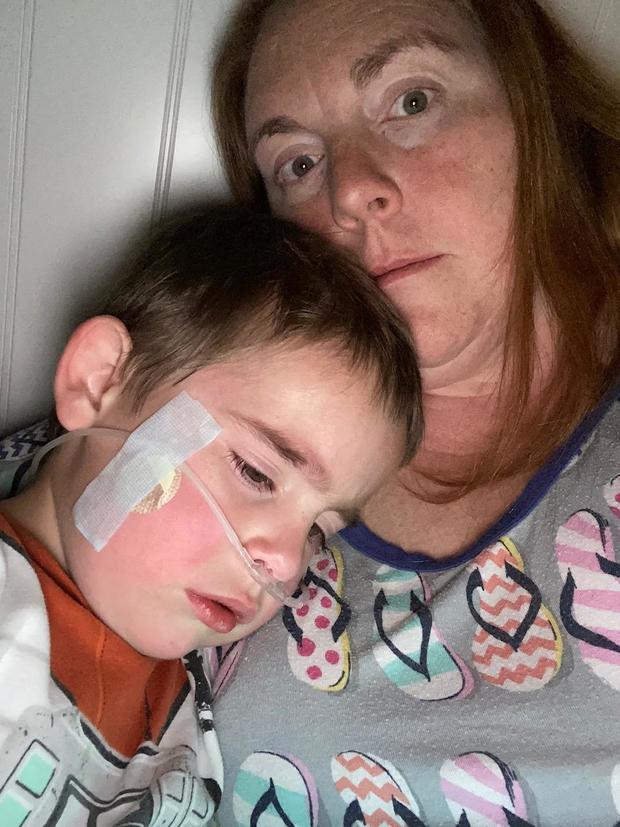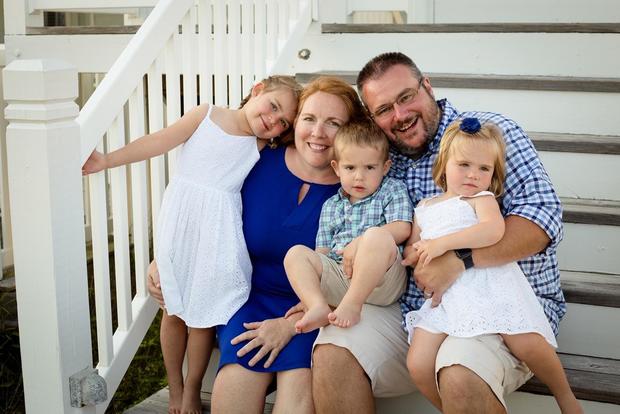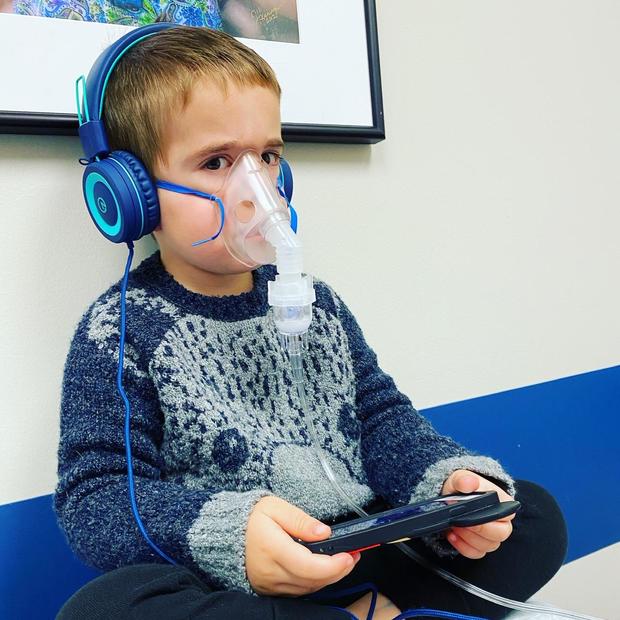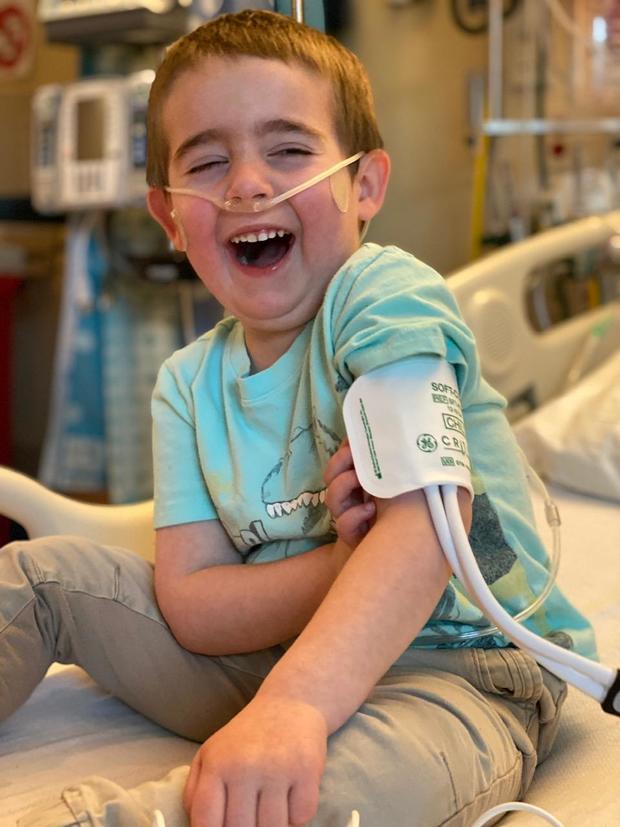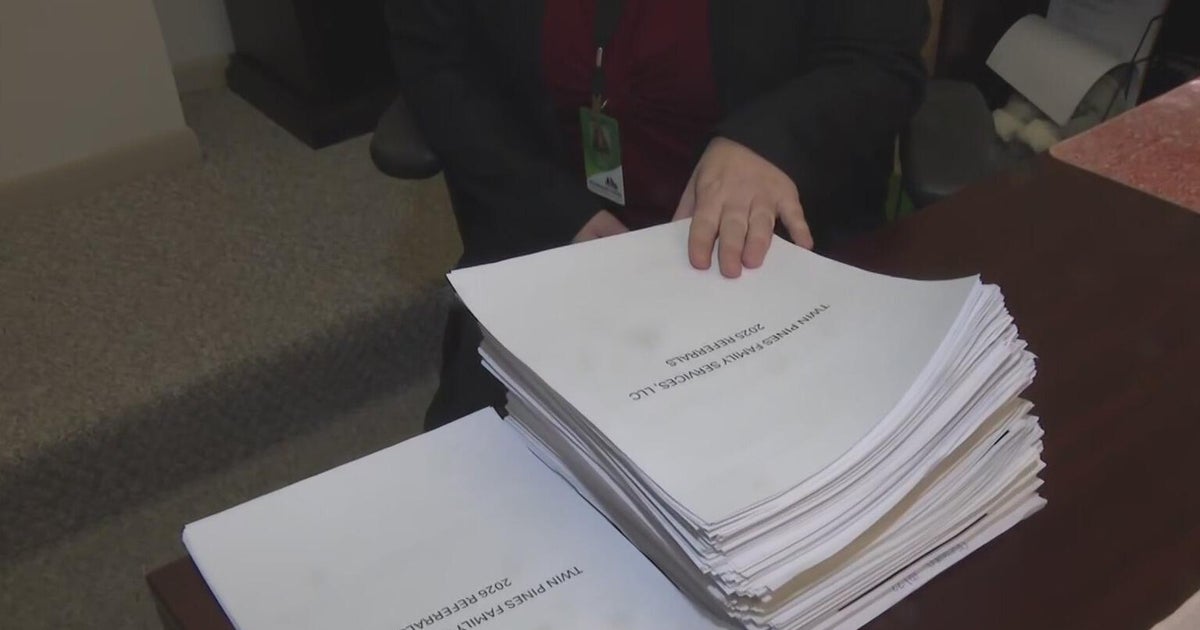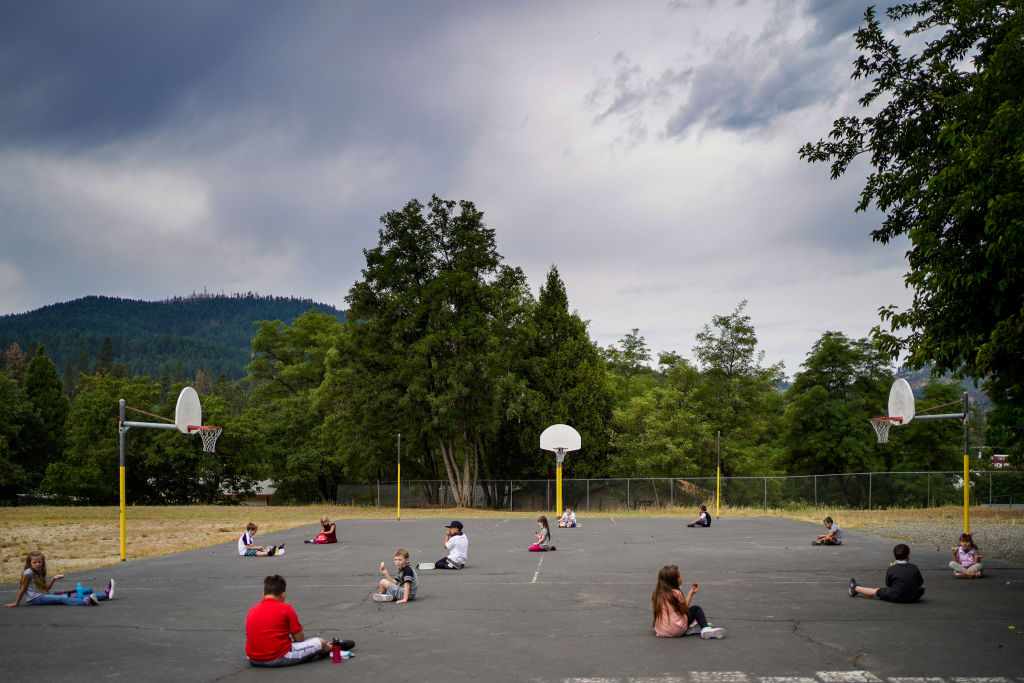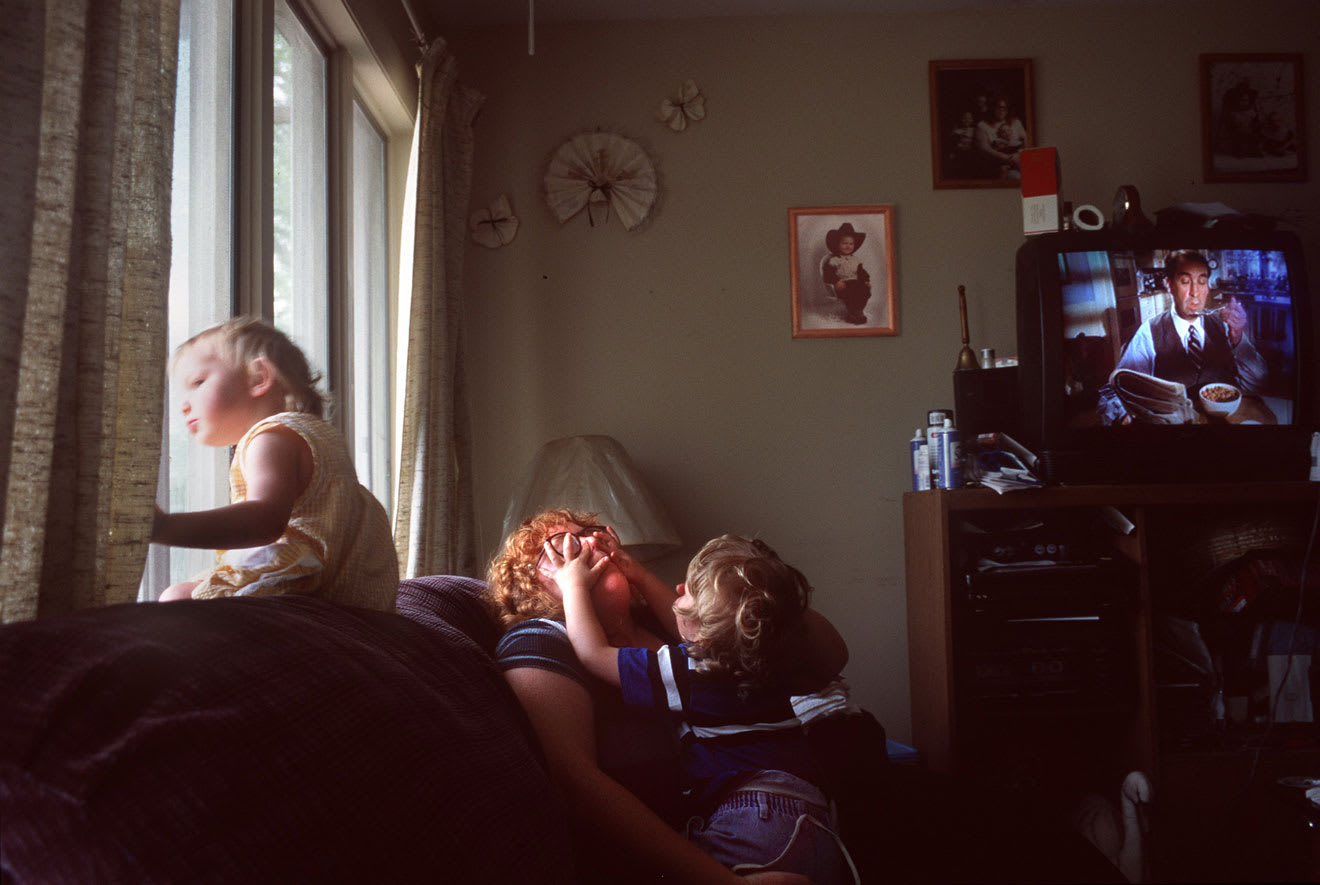Doctor details "torture" of watching her 4-year-old son struggling to breathe while battling coronavirus
As the coronavirus pandemic spreads throughout the world, countless gut-wrenching stories have emerged of families battling the virus. Some of the most difficult to hear are those which involve children. And Dr. Anna Zimmermann, a neonatologist in Denver, Colorado, just added her son's story to that list.
"Since March 12th, the kids have not left the house," she wrote in a blog post on her website, Mighty Littles. "My husband went to Costco once. I went to Target once. My kids never went on a playdate. I wouldn't let them go across the street to talk to their neighborhood friends. We adopted the stay-at-home recommendations early and stuck to them. We did everything right. But Lincoln got sick."
Zimmerman said her son, Lincoln, is four years old. He didn't know what coronavirus was when he was admitted to Rocky Mountain Hospital for Children, where his mother works in the NICU.
"At the time of admission, he needed 2 Liters (L) of oxygen. That same night, he progressed up to needing 4L. By the next day, he was on 6L and then 9L," Zimmermann wrote. "He was working so hard to breathe - using all of the muscles in his chest, abdomen, and neck to help him breathe. As a doctor, I knew he was working hard to breathe. The medical terms used to describe respiratory distress - seesaw breathing, nasal flaring, grunting, retracting, tachypneic - he had them all. As a mom, it was torture watching him struggle."
At the height of his illness, Zimmerman said her son's coughing spells were constant and terrifying. He lost the desire to eat and drink entirely, and he slept for the vast majority of the day and night.
"He was probably sleeping 20 to 21 hours a day," she told CBS News. "You know, he would wake up for a couple hours in the morning and maybe an hour in the afternoon, but otherwise he was just sleeping. He couldn't eat. All of his energy was going into breathing. And that was pretty scary to watch."
Initially, she said, Lincoln's timeline didn't seem consistent with COVID-19, and neither did his tests. He had had mild symptoms for a week before spiking a fever. His chest x-ray presented like a run-of-the-mill respiratory virus. His CBC blood test didn't show the low white blood cell count or low lymphocyte count that most pediatric COVID-19 patients get.
But two days later, she said, things took a turn for the worse when she got the news that no parent wants to hear: Lincoln's coronavirus test had come back positive.
"It was definitely baffling when they said his test came back positive for COVID," she said. "Literally, the things that run through your mind are: How? Why? When? Where? What?! Where could it have come from? And you start going through every little thing that you did. I honestly don't know what the exposure was because nobody that we were around was sick, which means the exposure probably came from some asymptomatic person. We did walk around the block. So, could he have stuck his fingers in the mud and then picked his nose? Yes, absolutely. He's a 4-year-old boy. But honestly, I just don't know."
Zimmermann said she cried for nearly four hours the night her son was diagnosed. She said she couldn't sleep and her heart broke hearing Lincoln vocalize his pain.
"'Mama, this isn't worth it,'" she recalled him saying. "Mama, when is this going to stop? Mama, I don't feel so good. Mama, it is no use. Mama, I'm not gonna go home."
The reassuring texts she had been receiving from coworkers also dried up, she said, as her fellow doctors ran out of ways to spin the situation in a positive light.
"I was talking with one of the physicians I work with," Zimmermann said. "And you know, when Lincoln first got sick and had a fever, he would say, 'It's not going to be COVID. There's so many other viruses out there right now.' 'Well, even if it is COVID, kids do really well with COVID.' 'Well, even though you're in the hospital, you're only on two liters.' You know, like trying to give me all these positive reassuring texts. And that Wednesday and Thursday, he told me later, 'Yeah, I didn't have any positive reassuring texts to send back' because we all knew how sick Lincoln was, but nobody was really saying how sick he was. He just kept going up on support. Up and up and up and up."
The isolation took its toll on Lincoln's family, too.
"It was really hard when you're going through a hospital stay with your child to not be able to give your husband a hug or give your daughters a hug – and not only reassure them, but have that comfort that you're used to having in stressful situations," Zimmermann said. "When I get stressed out, my husband gives me a hug. That's really helpful. And we couldn't do that."
But outside the hospital, the community rallied around her family, she said. His school put together a meal train to deliver nightly dinners to his father and sisters back at home. The family's neighbors dropped off fresh berries at the house and sent Zimmermann a care package with shower wipes and dry shampoo, since she couldn't leave Lincoln's hospital room – not even to shower.
Then, nearly a month after Lincoln got sick, he got better, she said. The support he required decreased enough that Zimmermann could administer the oxygen he required at home for the remainder of the time his body needed to heal.
"He's doing great," Zimmermann told CBS News on Friday. "He's totally recovered. He's running around the backyard with his sisters, off of his oxygen, back to his normal 4-year-old self."
Now, she said she hopes her son's story will serve as both a cautionary tale and a comfort to other families facing the prospect of a coronavirus-positive child.
"You see news stories: People are angry about being at home. Moms are angry about having to homeschool their kids," Zimmermann said. "We're frustrated to have to stay home. And so I was wanting to write our story to say look, this is why you're doing it. Yeah, it's hard to be at home with your kids 24/7. And yes, it's hard to hold down a job. And yes, we're going to lose some income. But look how sick my son got. And we did everything right. And then followed right after that is: Look how sick my son got and he still recovered."
